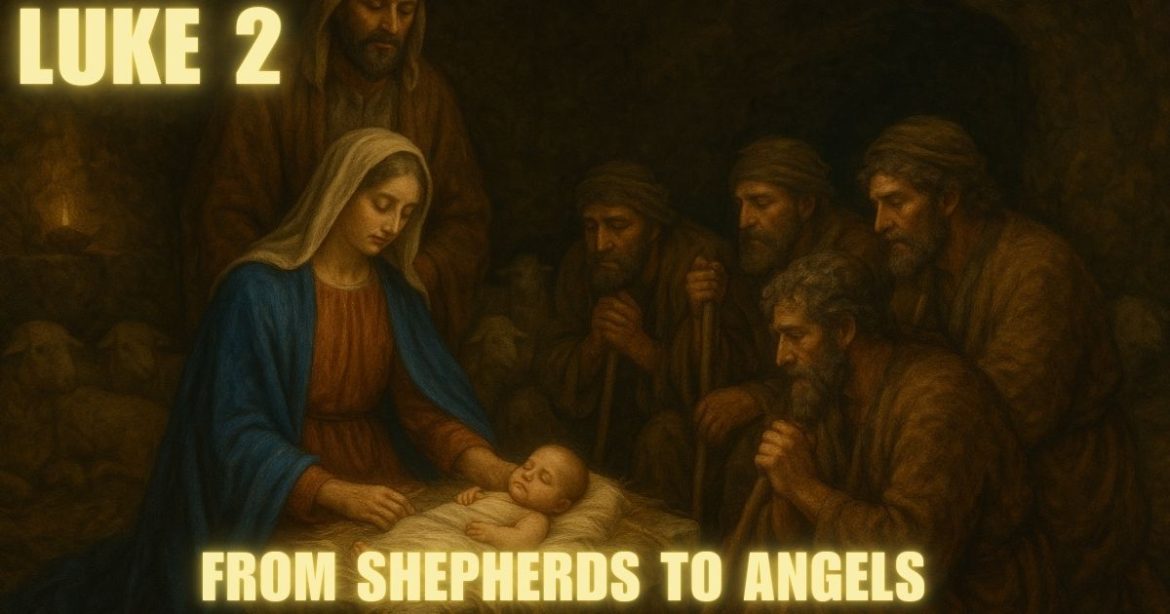Luke 2 is one of the most recognized and beloved chapters in the entire Bible. It tells the story of Jesus’ birth in language so poetic and warm, it’s etched in the hearts of generations. Whether through holiday readings or animated specials like A Charlie Brown Christmas, this chapter connects with people across ages and backgrounds. But beyond its familiarity, Luke 2 holds deep lessons for how we understand power, humility, and the radical nature of God’s love.
Luke’s Unique Lens: A Doctor, a Historian, a Poet
Luke wasn’t one of the twelve disciples. He didn’t walk with Jesus during His earthly ministry. He was a physician and a companion of Paul—well-educated and fluent in Greek. His Gospel reads like a carefully researched historical narrative. Unlike the action-packed accounts in Mark or the fulfillment-of-prophecy focus in Matthew, Luke takes his time to paint a full, human picture. That’s why his retelling of Jesus’ birth hits so differently.
What makes Luke’s perspective even more compelling is how inclusive it is. His attention to women, the poor, and societal outcasts makes this Gospel feel deeply human. His writing style suggests he interviewed people—possibly even Mary herself—to capture the tender and treasured moments that shaped the early life of Christ.
The Unexpected Journey
The story opens with a decree from Caesar Augustus that everyone must return to their ancestral homes for a census. That meant Joseph had to travel from Nazareth to Bethlehem—a difficult, dangerous journey, especially with a pregnant wife. This wasn’t just an inconvenience; it was treacherous. Roman roads were sometimes safe, but bandits and harsh terrain made travel brutal.
Mary and Joseph’s experience reminds us that God’s plan often unfolds amid real hardship. There’s no angelic escort or divine intervention making the road easier. Yet this journey was part of something bigger: fulfilling ancient prophecy, placing Jesus in Bethlehem, the city of David.
No Room at the Inn
So often, the “no room at the inn” line gets interpreted as cruel rejection. But it may have been a simple, human problem: overcrowding. Bethlehem was bursting at the seams with travelers. Family homes were packed. The couple found refuge not in a cold barn but likely a cave or stone shelter used for animals—attached to a home, safe and sheltered.
And yet, the King of Kings was born there, laid in a manger—an animal’s feeding trough. That’s the paradox at the heart of Luke 2. God enters the world not with trumpets and thrones but through the back door of society. It’s this upside-down kingdom that redefines greatness.
The Shepherds: The First Evangelists
The shepherds are fascinating. Some were likely honorable family workers, while others may have been social outcasts or even considered shady. Yet they’re the first to receive the announcement of Jesus’ birth. An angel appears, radiant and terrifying in its glory, followed by a multitude of heavenly hosts praising God.
God chooses the lowly to receive His message first. This wasn’t a PR stunt—it was a spiritual truth. In a society that valued status and lineage, God gave front-row seats to the fringes. That’s the Gospel: good news for all people.
Mary’s Silent Strength
Mary doesn’t say much in this chapter, but her heart speaks volumes. After the shepherds arrive and spread the angel’s message, she treasures these things. She holds them close, reflects, and keeps them in her heart. This young girl—miraculously pregnant, away from home, giving birth in obscurity—is the center of God’s plan.
Mary’s response shows us the power of quiet faith. She didn’t need to understand everything; she just needed to trust that God was with her. And that’s a word for us today—when life feels confusing or overwhelming, we can treasure the good, hold onto hope, and trust God’s presence in the unknown.
Living the Message
Luke 2 isn’t just a Christmas story. It’s a call to humility, faith, and inclusion. It reminds us that God often works through the ordinary, the poor, the unrecognized. We don’t have to be powerful or perfect to be part of His plan.
This chapter challenges us to see people differently—to value the quiet, the humble, the overlooked. It reminds us that faith doesn’t need fame. The first witnesses were shepherds. The first throne was a manger. And the first announcement wasn’t made in the halls of Rome but in a field at night.
Conclusion: The Gospel for All
Luke 2 is more than history—it’s an invitation. God’s message of peace and goodwill isn’t limited to the elite or the religious. It’s for the world. For the tired parent, the skeptical teenager, the forgotten worker, and the person who thinks they’re too far gone. It’s for everyone.
So, like Mary, treasure it. Like the shepherds, run toward it. Let this chapter shape how you see Christmas—and how you live every day after.

